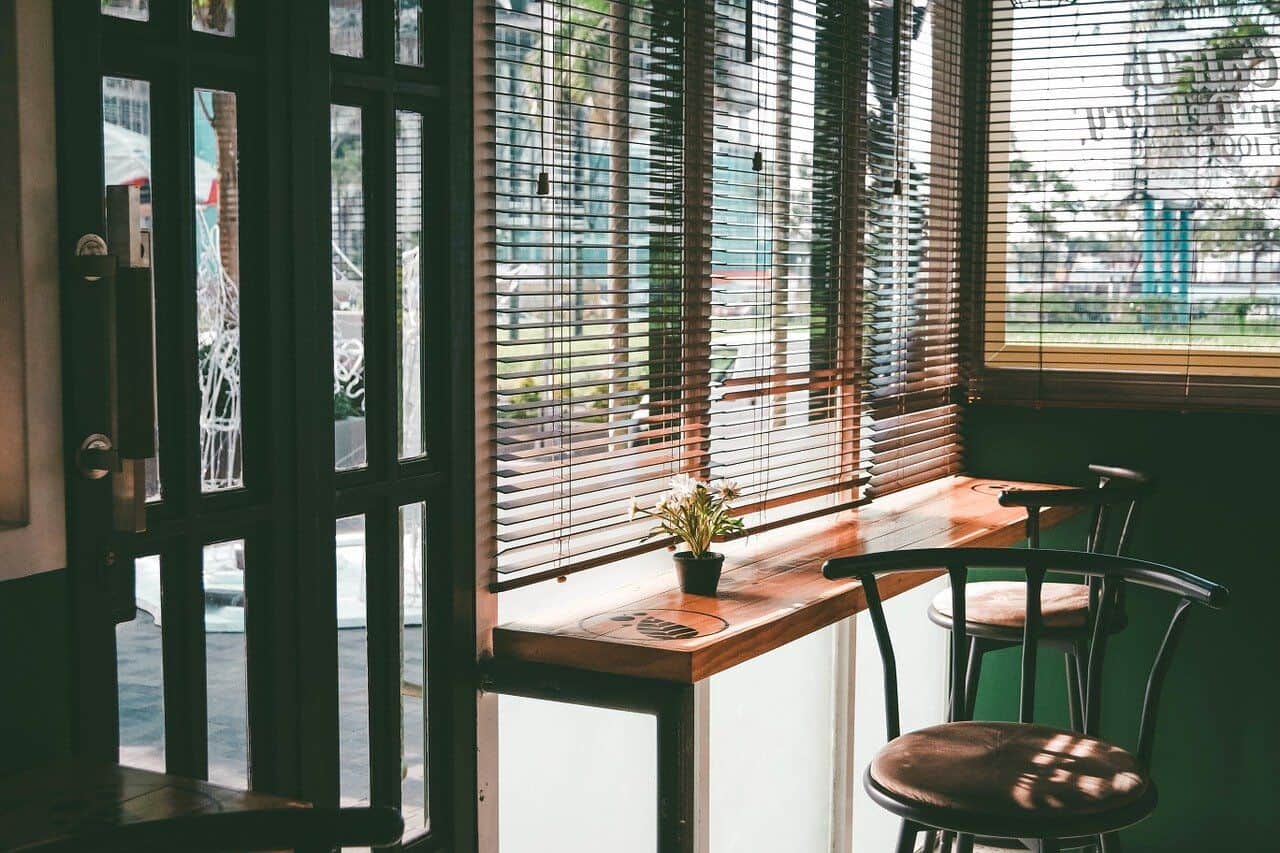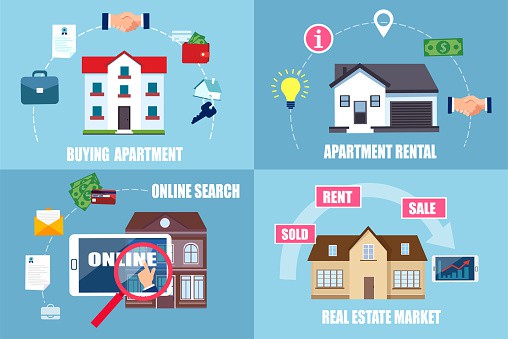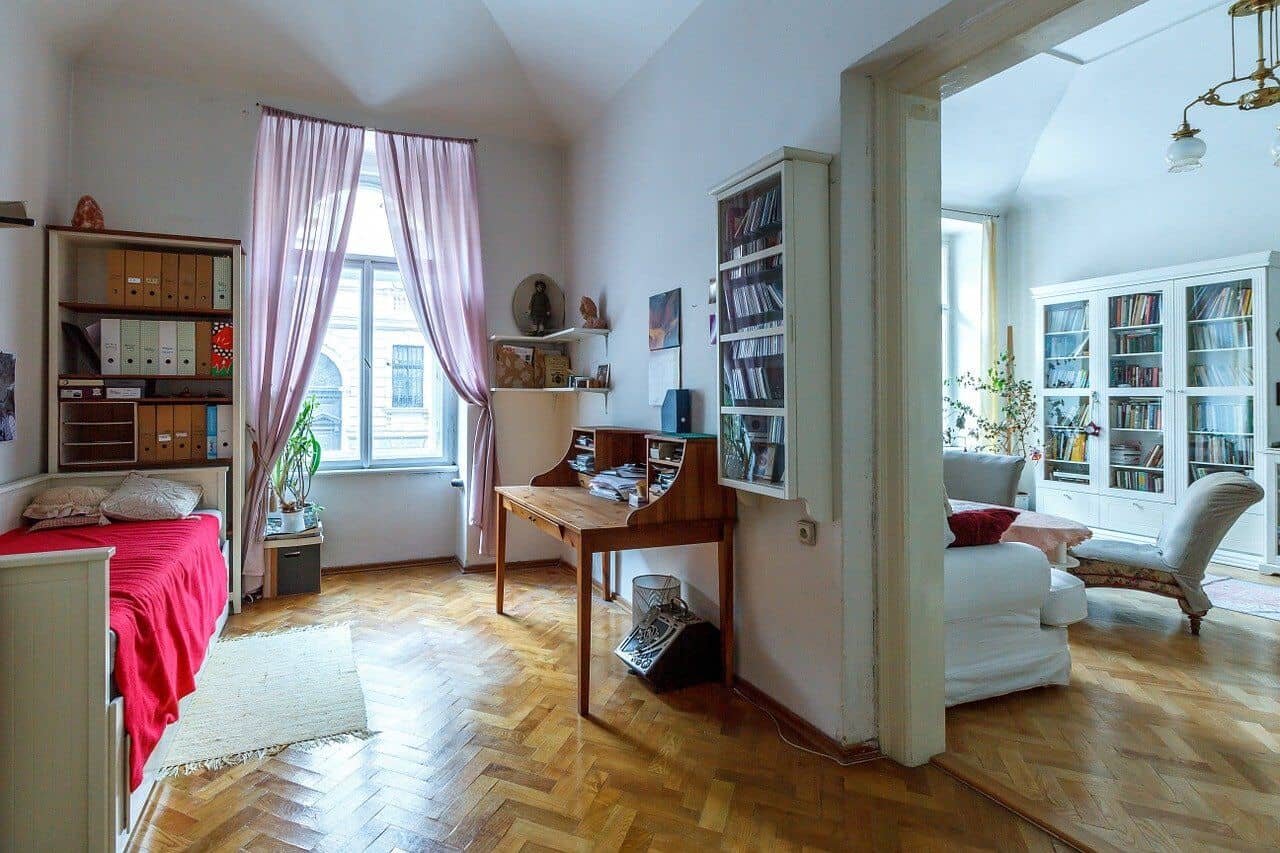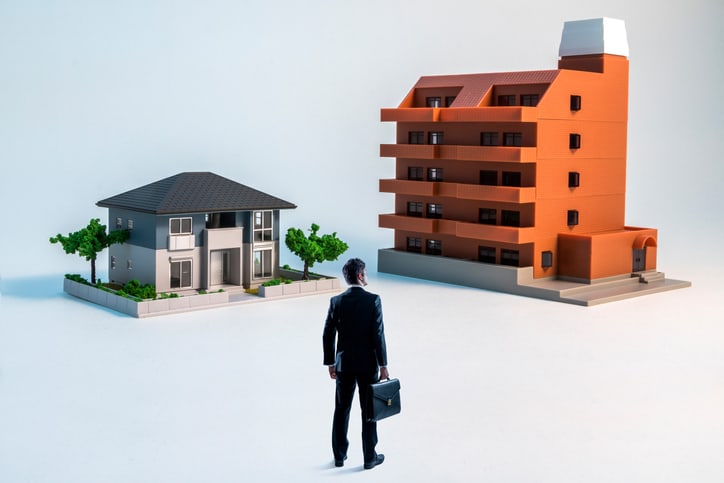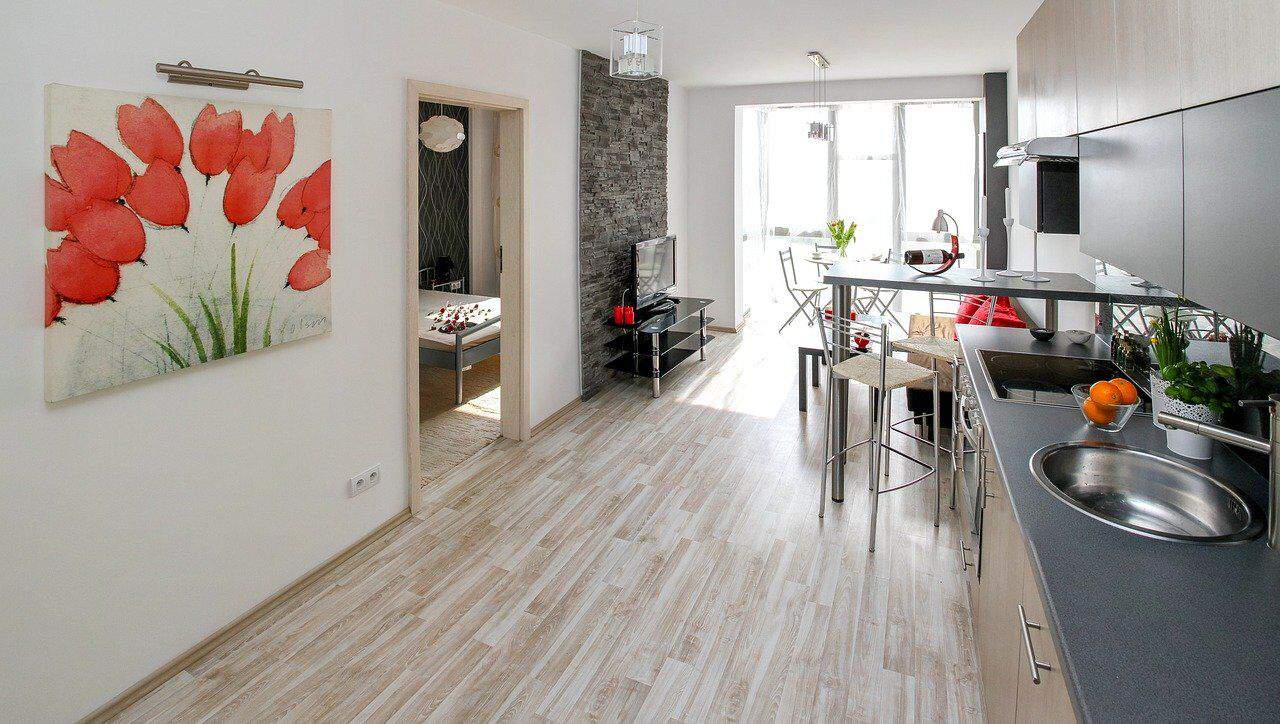November 30, 2020 at 1:42 pm
·
Justin Becker ·
Comments Off on The Process of Renting an Apartment
Are you on an apartment hunt, but don’t know where to start? The truth is that renting an apartment is a very involved process that requires you to have critical information.
For instance, you must first submit an application and wait for an acceptance from the landlord. There are also some critical documents that you should present at this time for consideration. You may find the apartment application process tedious, especially if you are a first-time apartment renter.
If you don’t know the process involved when it comes to apartment renting, there is no need to worry. Here, we will take you through the whole process and everything you need to know in order to qualify for an apartment.
Process of Renting an Apartment
Renting an apartment starts with an apartment application. This is the process of submitting the application form and the relevant supporting documents to go along with it. The landlord will then use the documents and information to determine your eligibility.
You usually have to pay a non-refundable fee to process your application, in most cases. The fees typically range between $30 to $50.
So, where can you find the application forms? Most rental apartments post their application forms online for easy access by any potential tenant. Therefore, the first place to check would be on the apartment’s website. If you prefer to fill out a physical application, visit the leasing office to pick one up. Whichever option you choose, whether online or in-person, ensure you fill the forms out as soon as possible, and with accurate details.
Below is a step-by-step guide on the apartment application process:
Find the Perfect Apartment
Before doing anything else, you need to know how to find the perfect apartment and view it. This will enable you to choose the apartment with the best features and amenities for you and your family member(s). In order to do so, you need to determine the kind of location you would like to stay in advance.
You will additionally need to set a realistic budget. We recommend that you only rent a new apartment that you can afford, so be sure you know how much rent that is.
If possible, have a professional inspect the apartment before you apply for it. This will help you avoid making maintenance requests for damaged things before you even enter the apartment. It will also help you settle in an apartment that is up to your standards.
To select the best apartment, compare several available options. You can search for apartments online, ask for referrals, or look for one in-person. Take a look at our top five websites to search apartments for rent.
Filling Out Your Rental Application
After identifying your dream apartment, it is now time to fill out your rental application. You can ask the property management company for direction on this step, if needed. If you have plans of having a roommate or co-signer, they most likely also need to fill out the application.
With many apartments, you will have to fill out the application online. You may, however, be able to complete the application at the property manager’s office, as we pointed out earlier.
You will need to provide critical documents and information at this stage. Let’s consider them below:
Contact Information
Why is your personal contact information necessary? The landlord needs to communicate with you throughout the screening process. Therefore, it would be helpful to provide the correct contact information through which they can reach you with ease.
You will be asked to provide your phone number, address, and email address in most cases. Ensure that you provide the correct and up-to-date information so you can be contacted if they need any further information.
Photo ID
You will also be required to provide identification. This will be in the form of either your state ID or driver’s license. Ensure that the names you fill out on the forms match those on your photo ID.
Social Security Number (SSN)
During the application process, most landlords require a social security number. Some go further to request your actual social security card. This is mainly required for background and credit checks.
Previous and Current Employment Information
You will also have to provide your previous and current employment information in order to verify employment and for reference purposes. Include the phone number, company name, and occupation in your application for the landlord to achieve employment verification with ease.
Proof of Income
You will have to provide proof of your monthly income, including tax returns, bank statements, and/or recent pay stubs.
Landlord References
Most landlords also ask for previous landlord references. You should, therefore, secure these reference letters in advance.
Vehicle Information
This information is required, especially for those looking for a parking spot. Ensure you provide the correct details about your car. This includes the license plate number, car model, and make.
Emergency Contacts
What happens if there is a medical emergency and you stay alone in a place far from family and friends? In such a case, the landlord should have an emergency contact to reach out to. You should, therefore, choose wisely who you add as your emergency contact.
Pay Your Application Fee or Processing Fee
You will be required to pay an apartment application fee for almost all applications. This is used to fund potential credit and background checks.
The application fee varies depending on several factors, including the landlord, the type of building, and the area. In some cases, you might find that the application fee is accompanied by a processing fee. You should, therefore, confirm with your property manager what the total amount is so you are prepared.
Remember, in most cases the application fee is not refundable, but this is something you will need to confirm with your new potential landlord.
Credit and Background Checks
When you decide to rent an apartment, expect to go through a thorough credit and background check. Most focus on any past criminal history and may date back as far as the property manager deems fit. Therefore, it is your responsibility to report any critical background information.
A credit check mainly focuses on the financial responsibility of the tenant. Every landlord is always looking for tenants who manage rent payments without delay. Here, the landlord also checks your credit score. If you have bad credit scores, ensure that you are honest and upfront with the landlord. Sometimes this can be as a result of past medical bills or student loans, in which the landlord may work with you.
Note, even in situations where you have a bad credit history, there is still an option of having a co-signer.
Proving You Can Afford the Apartment Rent
How can landlords have confidence that you will manage rent payments responsibly every month? They achieve this by requesting you to prove you can afford to pay rent. Here, you are required to provide proof of income, employment, or both.
In most cases, you should submit your last month;s worth of pay stubs from your employer, tax returns, and/or recent bank statements. Depending on your job, you might also have to provide client contracts, W–2 forms, among other documents.
For your information, this process takes the longest to complete. It is the reason why the rental application process time might take three days. Learn how long does it take an apartment to approve you here.
If you can’t afford to pay rent, this is the time to consider having a roommate. They will most likely be required to fill out their own application and provide proof of income.
You can also figure out whether or not you need a co-signer. A co-signer is anyone you know with a good credit report, has very good income, and who is willing to be your guarantor. They take the legal burden of paying your monthly rent if you fail to. Every co-signer must sign a legal document stating that they fully accept this responsibility.
Provide Reliable Personal References from Colleagues or Previous Landlords
Personal references are oftentimes the difference between your application getting approved or denied. Personal references are critical, especially for prospective tenants that do not have a rental history.
Get someone who can vouch for your dependability and reliability when it comes to paying monthly rent. You can get such references from a colleague at work or a friend. Ensure it is someone who knows you well, and is also someone that would carry weight with your landlord.
For instance, if your previous landlord gives you a glowing review and puts it in writing, that can go a long way. Make sure they point out that you abided by the apartment pet policy (i.e. paid the pet fee on time and kept the apartment clean) and you did not make unnecessary noise.
Even though a letter of recommendation is not typically mandatory, it can help persuade property managers and landlords during the rental application process.
Lease Signing
Signing the lease is a critical part of the rental application process. Before you sign the lease agreements, ensure that you inspect the apartment, check-in with your new potential neighbors, and meet your potential landlord.
This would also be the time to discuss or negotiate your move-in fees, i.e. monthly rent, security deposit, and possible additional fees. Most of the time, the respective state regulates the deposit fee, however expect to pay at least an equivalent of the first month’s rent as a security deposit.
Take advantage of this time to also ask critical questions, including how to get the security deposit back when you leave.
Most importantly, ensure you read and understand the lease agreement before signing it. Learn how to read an apartment lease agreement here.
Read more
October 5, 2020 at 1:27 pm
·
Justin Becker ·
Comments Off on Renting an Apartment vs. Renting a House
If you are on a tight budget, determining whether to “rent or buy“ is pretty straightforward. Rent a place to live! With that said, once you have decided to rent, you will have to choose between renting an apartment and renting a house.
It is difficult to decide whether to rent an apartment or a house because both provide a variety of advantages and disadvantages. For example, a house offers you more privacy while denying you the opportunity for convenience. In contrast, an apartment may provide you with less privacy, while providing convenient access to downtown, public transportation, and shopping malls, among other things.
Renting an Apartment vs. Renting a House
Generally, some expenses are common when moving into both an apartment and a house, such as a security deposit, first month’s rent, and renters insurance.
If you want to know which option is ideal for you, you need to understand all of the advantages and disadvantages of renting apartments and houses. That way, you can weigh the benefits and drawbacks against your preferences and financial circumstances/financial situation.
With that said, to help you make an informed decision, we have put together an informative article that compares the positives and negatives of renting an apartment vs. renting a home.
Pros and Cons of Renting a House
A house comes with several perks, along with some downfalls. So, before you decide on renting a house, here are some of the pros and cons:
Pros of a House Rental
More Privacy
When compared to apartments, a house, on average, provides more privacy. Houses typically have greater outside spaces when compared to apartments. As a result, it is much easier to enjoy quiet time in your own home than in an apartment.
Furthermore, unlike apartments, where it is common that just a wall separates tenants, houses provide a reasonable space between you and your next door neighbor, thus, reducing the likelihood of being disturbed by noisy neighbors. Read more on how to deal with noisy apartment neighbors here.
Spacious
Homes are often larger than apartments, giving you more square footage to deal with. This feature allows you to have much more opportunity to style and decorate your home as you see fit. For example, a house can have enough storage places for all of your belongings, saving you money on storage rental.
Furthermore, houses give you more flexibility in terms of what type of furniture you may purchase, whether large or small, because the larger floor space will allow you to do so. In contrast, apartments will give you a smaller floor space to work with, limiting the type of furniture you can work with. Learn here on how to arrange furniture in a small living room apartment.
Family Living
Single-family housing is often the ideal environment for a growing family. You will not have to worry about your children upsetting your neighbors if you live in a house since you typically will have plenty of backyard area for them to play.
Potential to Purchase
Another advantage of renting a home is the possibility of persuading the owner to sell it to you if you like it. It is common for families to develop attachments to the homes in which they live. If this is the case, it’s simple to work out a rent-to-own home lease agreement with the property owner to pay off the purchase price gradually (monthly payments) until you eventually own it outright.
On the contrary, if you reside in a great apartment, you may find it impossible to realize your dream of purchasing apartment units from the property manager.
Potential to Sublet a Room
During your rental period, you can sublet the room(s)/extra space you do not use. If you have a small family, renting a room could be a good way to supplement your income while lowering your monthly rent.
Please note that if you are thinking of subletting a room, make sure the person you are dealing with is someone you can trust. If choosing this route, it is always a good idea to rent to a family member or a close friend who you know well.
A Place for Pets
Breed restrictions are common in apartment communities (usually stated in the apartment pet policy) because landlords wish to protect other residents from dangerous pets. On the other hand, renting a house means, usually, more freedom to live with any dog breed you desire. Also, your pet will have enough backyard to run around, unlike in apartments where they are confined to a smaller space.
Cons of a House Rental
More Chores
One of the most significant disadvantages of owning a home is the increased responsibilities. Since a house is larger than an apartment, cleaning will take longer; compared to cleaning your apartment, which can take significantly less time.
Think about this, you move into a house and discover you need to mow the lawn or risk making your home’s private outdoor space messy. So, you can either spend more time mowing the lawn or hire lawn services, which is an additional cost.
Higher Rent Prices
When it comes to rental pricing, houses are more expensive than apartments. It costs money to enjoy privacy, along with the extra space that houses offer. If you are on a tight budget, renting a house may be out of the question; nevertheless, renting an apartment may make more financial sense.
Higher Utility Costs
Houses have a higher utility cost than apartments. The more space/more rooms you have, the more energy you will ultimately need to cool and heat your home. So, if you are thinking about renting a house, prepare to pay higher utility costs, along with other associated costs.
Further Away from Metro Areas
It is difficult to find a house closer to a metro area, as opposed to apartments, making it more difficult for tenants to access amenities. This does not mean that you will not be able to find a home closer to major cities, but the housing market prices them significantly higher than ones located in suburban neighborhoods.
Landlord Experience
The landlord experience is another disadvantage of home renting. Apartments are frequently maintained by professional property management companies that are more competent and adept at customer service than most individual landlords who rent their homes.
Pros and Cons of Renting an Apartment
Apartments offer benefits and drawbacks as well, so weigh them before renting one:
Pros of an Apartment Rental
Lower Rent Prices
Renting an apartment is usually less expensive than renting a whole house. Furthermore, you can get a fairly spacious apartment while paying reasonable rent.
Lower Utility Costs
Since many apartments have limited space, heating and cooling are less expensive than houses. That said, rent a house if you know you can handle the additional cost of paying a higher utility cost.
Favorable Walkability
Most apartments are in the heart of a city, putting them within a walking distance of a shopping mall or restaurant. On the other hand, most houses are located in the suburbs, requiring you to drive to the city or rely on public transportation.
More Flexibility
Apartments can be the best option for you if you have a job that requires a lot of movement. Since you naturally would have fewer home items when living in an apartment, due to the lack of space, moving out is much easier.
On the other hand, houses typically contain larger spaces, thus more belongings, implying that you will pay more on logistics while relocating.
Variety of Amenities
Several amenities are available in apartment buildings. These can include an on-site gym, a swimming pool, a clubhouse, and even play areas for the children. Furthermore, unlike houses, where you are confined to your backyard and secluded from your neighbors, apartments provide a community living environment.
Less Maintenance
When it comes to apartments, the landlord is frequently responsible for major maintenance, and all you have to do is submit maintenance requests. In a house, you are either responsible for maintenance, or your landlord will take longer to get the repairs fixed. For instance, if your plumbing breaks, you may have to contact a plumber yourself to get the problem fixed in a timely manner.
Better Landlord Experience
Professional property managers are frequently in charge of apartments (apartment management). On-site managers are also common, which means you may contact them at any moment for emergency assistance. A house landlord, unlike an apartment landlord, may be out of reach, leaving you with no one to look after your needs.
Wondering what is considered emergency maintenance in an apartment? Find out more here.
Cons of an Apartment Rental
Nuisances
Neighbors at an apartment complex are often very close to one another, which can cause all sorts of problems. From noise complaints to burglary and even disputes over personal property, these issues have been attributed to the close proximity of living spaces.
If you do experience these issues from neighbors, you may want to consider installing heavy curtains, placing large furniture in strategic places, and using a fan to cover up any noise that might escape.
Restrictions
Frequently, apartments have a set of rules that apply to all apartment dwellers. Although the rules and regulations are in place for the betterment of the community, some of them may conflict with your tastes and wishes.
Consider this scenario, you have been living with your pet at home, but when you move to an apartment building/apartment community, you discover that the breed of your dog is not permitted in the community; how unfortunate! This would leave you the choice of either getting rid of your furry friend or finding a new place to live.
Parking
Another major issue with apartments is the lack of parking. You will always struggle to park your car after work if you don’t have an allocated parking area. A house, however, typically provides private parking spaces for your car(s).
Less Privacy
Unlike renting a house, where you have a good distance between two neighbors, the distance between you and your next apartment neighbor is very close.
What to Look for When Renting an Apartment
Make an apartment list of non-negotiables, such as in-house laundry, more living space, and a pet-friendly neighborhood, among others. Also, do a thorough inspection of the unit prior to moving in. Double-check that the apartment’s walls are painted and that the door and windows locks are in working order.
It is additionally crucial to ensure that the community is well-kept by the property management team. Every person has the right to live in a comfortable environment. Furthermore, the landlord must not discriminate against you or anyone else on the basis of color, race, national origin, familial status, handicap, sex, or any other protected characteristics under applicable laws.
As a tip, when looking for an apartment, consider using websites to search apartments for rent, such as real estate websites, to narrow down your options. For example, using apartment listing sites like clfapartments.com can assist you in finding your ideal apartment quickly. Learn more tips for finding an apartment here.
Conclusion: Renting an Apartment is the Better Option
Renting apartments offers several benefits that houses do not. For example, you can rent luxury apartments and pay less in utilities and rent, all while enjoying additional amenities, such as a swimming pool, playground, clubhouse, and gym, among others.
With that said, apartment living allows you to save more money, too. With savings, you can spend more on things that make you happy, such as vacations.
Furthermore, if you plan to buy a home one day in the near future, renting an apartment may allow you to save for a downpayment and qualify for a mortgage sooner. Just keep in mind that if you do not have a stable source of income, a mortgage payment can be burdensome. That said, plan to buy a home only when you are stable financially.
Read more
August 17, 2020 at 1:30 pm
·
Justin Becker ·
Comments Off on Owning a House vs. Renting an Apartment
Homeownership is more than just a good investment for many Americans. It is a way to live out their American dream, with the home being a symbol of achievement and stability.
There are many reasons why it is a good idea to purchase a home. You might be ready for the commitment or struggling with your landlord, and you want to take control of your living situation.
Although landlords might be difficult at times, it is important to protect your renting rights, which is why the federal government is always advocating for equal housing opportunity.
Homeownership is often not within reach for many people because of skyrocketing prices, high property taxes, and strict mortgage requirements.
So, which is better? Let us explore the pros and cons of each.
Owning a House vs. Renting an Apartment
The decision to rent vs. buying a home is both a personal and financial one (depending on your financial situation). Buying your own house is generally more expensive than renting, but it offers additional benefits that renters do not have the luxury of enjoying.
Should you rent an apartment or buy a house with that in mind? Your selection may be influenced by a variety of factors, including your existing financial health and the desire to relocate. So, in order to determine which option is best for you, you must first grasp the benefits and drawbacks of apartment renting versus buying a house.
In this post, we will examine the pros and cons of each option.
Pros of Owning a House
Owning a home can be a wonderful investment and one that many people aspire to make. Below are some of the reasons why this is:
Long-Term Investment
Buying a home is a good long-term investment. According to reports by the Federal Reserve Bank of St. Louis, between 2009 and 2019, the housing market value increased by $11.3 trillion. In the same period, the average price of homes sold increased by 28%.
The property value may decline in the short term, but this is generally offset by the value of the land on which your home is built.
That said, you may be able to make a decent return on your investment if you sell the house in the future. If you are wondering “how can I value my house online for free?”, head to webuyanyhouse.co.uk.
Long-Term Equity Building
Your home equity is the difference between what you can sell your property for (selling price) and what you owe (loan balance). Apartment or home renting does not provide you with any equity, as your monthly payments have no value over time. However, the more you make your payments for a mortgage, the more equity you build up.
So in this case, it is wise to pay a mortgage rather than committing to a monthly payment via rent if you want to have leverage in the future. With that said, you can borrow more loans against your property as collateral.
More Privacy Compared to Renting an Apartment
Many apartment complexes receive noise complaints regularly. Since a wall separates you and your next-door neighbor, you are vulnerable to noisy apartment neighbors/noise pollution. Besides, it is hardly possible to have a private space to hang out with your family. In this situation, owning a home is a major win because it gives you more freedom and privacy than a rental property typically does.
Advantages of Tax Deductions
Buying a home gives you some federal tax benefits (financial benefit). The IRS offers tax reductions for typical tax deductions, such as private mortgage insurance and mortgage interest, in order to make home ownership more affordable.
Backyard Space Can Help You Enjoy the Outdoor
In comparison to a tiny balcony in an apartment, a home has a larger backyard space. With a larger backyard, you can do more things, like go camping or build an above-ground pool.
In addition, you may also build a patio deck to relax with your family in your own home; your options really are unlimited. Most of the time, your next-door neighbor is a little further away, so you are less likely to be disturbed if you are trying to get some rest.
Ability to Decorate the Home to Your Taste
Owning a house gives you complete control over how you want the home to look. You can replace the interior and paint it a new color without anyone influencing your selection.
That said, it is easy to make changes compared to apartment renting. Often, rental properties require you to run the decision by the landlord before making any major changes. In fact, you will be unable to make significant changes to an apartment and will be compelled to leave it as-is.
Keep Your Pets without Worrying About Restrictions
In many apartments, pet limits and breed restrictions are common industry practices. With that said, you may find the perfect apartment, but a restricted breed might as well make you lose the chance to live in that apartment.
On the other hand, owning a home gives you the freedom to have the kind of dog breed you want. In addition, because you will be needed to attend a pet interview, the apartment clearance procedure can be time-consuming, and you may have to follow a strict apartment pet policy.
Cons of Owning a House
Owning a home does not come without its difficulties, one of which is high housing prices. Here are some of the cons of owning a home:
Higher Repairs and Maintenance Costs
Homeowners often face expensive tasks for repairing and maintaining their homes. Repairs can cost thousands of dollars, and many homeowners don’t have the money on hand for this type of unexpected expense.
From the heating and cooling system to the roof, many moving parts can require maintenance or repairs. These other costs often exceed what a homeowner anticipates. For this reason, an apartment renter is a big winner here because there are little to no maintenance responsibilities.
This is why potential buyers must do thorough financial planning before taking a step to acquire a home.
Requires a Long-Term Commitment
If your job necessitates frequent relocations, purchasing a home might be a very expensive alternative because you will have to sell it before making another move. In reality, compared to a few household things in an apartment, moving in and out of a home is quite pricey. This implies you will be spending more time relocating from one home to the next. With that said, apartment renting here would be a great option.
Mortgage Payments Typically Higher than Renting an Apartment
In most cases, a mortgage payment can be higher compared to rent expenses. If you don’t have a stable job, renting a flat makes more financial sense compared to buying a house as a primary residence.
Cost of Property taxes
Homeownership comes with a series of expenses, which includes property taxes. You are obligated to pay them as required by law. An apartment renter has no property tax responsibility, as it is paid by the property owner.
Higher Upfront Housing Costs Compared to Renting an Apartment
When compared to renting, the purchase price/asking price of a property is much higher (especially when adding the closing costs). For example, home buyers typically have to put down at least a 20% down payment to qualify for a mortgage. In addition, home buying necessitates paying homeowners insurance, which is a separate expense. However, renting an apartment only requires paying a security deposit, one month’s rent, pet deposit (if applicable), and an application fee.
Pros of Renting an Apartment
Apartment renting can alleviate a lot of liability, while still providing a safe and cozy environment for you and your family. Below are some of the reasons why this is:
Flexibility to Move to Different Locations
If you want to move out of an apartment, all you need is to give a 30-day written notice to your landlord, especially if you are on a month-to-month lease option. For a home, the case is totally different and takes longer. For this reason, as a renter, you enjoy the flexibility of changing locations without breaking the bank.
A home’s location is typically not convenient, like apartments. That said, it is easier to access public transport while living in apartments compared to home living.
No Responsibility for Repair and Maintenance
As a tenant, you have no obligation to maintain the property like a homeowner. Of course, your lease agreement stipulates your role in repair maintenance (learn more on how to read an apartment lease here). That said, most renters often spend less on utility and maintenance than homeowners.
The majority of the time, a renter has more discretion over how much they spend on utilities than a homeowner. In addition, a unit is often smaller and, thus, requires less heating and cooling compared to stick-built homes, or even mobile homes for sale.
No Real Estate Taxes
Renting an apartment allows you to avoid having to pay property taxes. Apart from rent and renter’s insurance, you don’t have much else to spend your money on.
Lower Upfront Cost
Moving to an apartment costs a lot less than buying a house (no down payment like buying a home). Also, logistics will cost less compared to moving into a home, and renters have a big relief since they don’t pay HOA fees, like homeowners do.
Utility Costs May Be Included in Rent Payment
Some apartment communities include utilities in their rental payments, so renters do not have to worry about them. Often, spending money on utilities is a big commitment and that is why your rental agreement will outline which utilities are covered. So, ensure you go through the rental agreement and understand which apartments that include utilities. For instance, in most cases, trash removal is one item included in the rent payment.
Cons of Renting an Apartment
There are some definite drawbacks of apartment renting. Here are some of the cons below:
You Will Not Build Equity with a Rent Payment
The rent you pay does not earn you any equity in the long term, so a homeowner is better off paying a mortgage, if building equity is a priority, in the long run.
Limitations When Upgrading the Space
There are strict rules in place that dictate what you can and cannot do with the apartment space. From painting the walls to installing new furniture, everything is monitored by the landlord or property manager. With that said, as a renter that signed a lease, you may be forced to stay in a unit that does not compliment your taste.
Rent May Increase Annually
When can your landlord increase rent? When renting an apartment, rent increases are unavoidable. A landlord may give you notice that you will be required to pay a higher rent when the lease ends, which might be a major setback if you are on a tight budget.
Amenities Can Be Old or Out-Dated
In most cases, when you want to save money, you may be forced to settle on a unit with out-of-date amenities. Old amenities are unappealing, and your apartment living experience will not be as nice as you would like.
No Privacy
Living in an apartment can be difficult because there is less privacy. There are often long hallways and open spaces to which everyone has access to. This can make it difficult to truly relax and feel safe in your own space.
No Credit Score Improvement
While paying your mortgage on time raises your creditworthiness, paying rent does not give you the same benefit.
Final Thought
Based on the pros and cons of both options, we can conclude that renting an apartment is the better option. It makes more sense to have flexibility, closeness to a city, and fewer upfront costs, such as renters insurance, to name a few advantages. The perks of apartment living can help you save more money and be financially stable in the long term.
Read more
